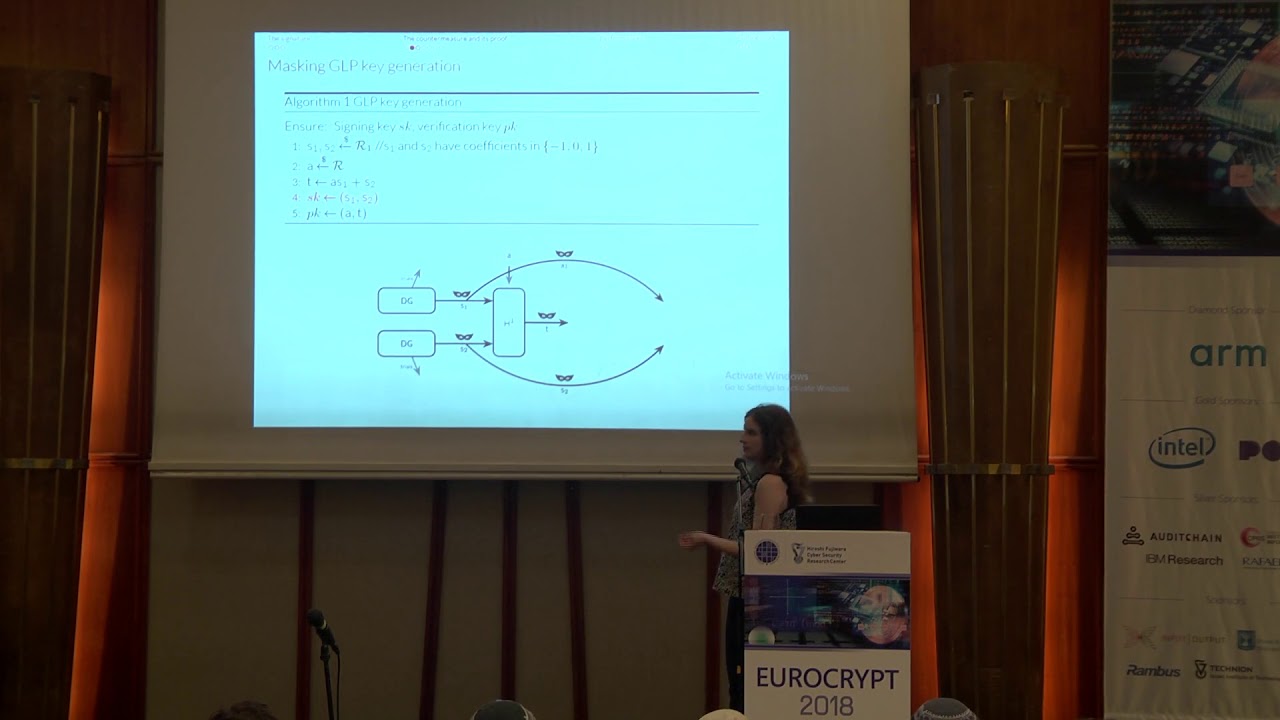Welcome to the resource topic for 2018/381
Title:
Masking the GLP Lattice-Based Signature Scheme at Any Order
Authors: Gilles Barthe, Sonia Belaïd, Thomas Espitau, Pierre-Alain Fouque, Benjamin Grégoire, Mélissa Rossi, Mehdi Tibouchi
Abstract:Recently, numerous physical attacks have been demonstrated against lattice-based schemes, often exploiting their unique properties such as the reliance on Gaussian distributions, rejection sampling and FFT-based polynomial multiplication. As the call for concrete implementations and deployment of postquantum cryptography becomes more pressing, protecting against those attacks is an important problem. However, few countermeasures have been proposed so far. In particular, masking has been applied to the decryption procedure of some lattice-based encryption schemes, but the much more difficult case of signatures (which are highly non-linear and typically involve randomness) has not been considered until now. In this paper, we describe the first masked implementation of a lattice-based signature scheme. Since masking Gaussian sampling and other procedures involving contrived probability distribution would be prohibitively inefficient, we focus on the GLP scheme of Güneysu, Lyubashevsky and Pöppelmann (CHES 2012). We show how to provably mask it in the Ishai–Sahai–Wagner model (CRYPTO 2003) at any order in a relatively efficient manner, using extensions of the techniques of Coron et al for converting between arithmetic and Boolean masking. Our proof relies on a mild generalization of probing security that supports the notion of public outputs. We also provide a proof-of-concept implementation to assess the efficiency of the proposed countermeasure.
ePrint: https://eprint.iacr.org/2018/381
Talk: https://www.youtube.com/watch?v=4Cnqk6QEffY
See all topics related to this paper.
Feel free to post resources that are related to this paper below.
Example resources include: implementations, explanation materials, talks, slides, links to previous discussions on other websites.
For more information, see the rules for Resource Topics .
